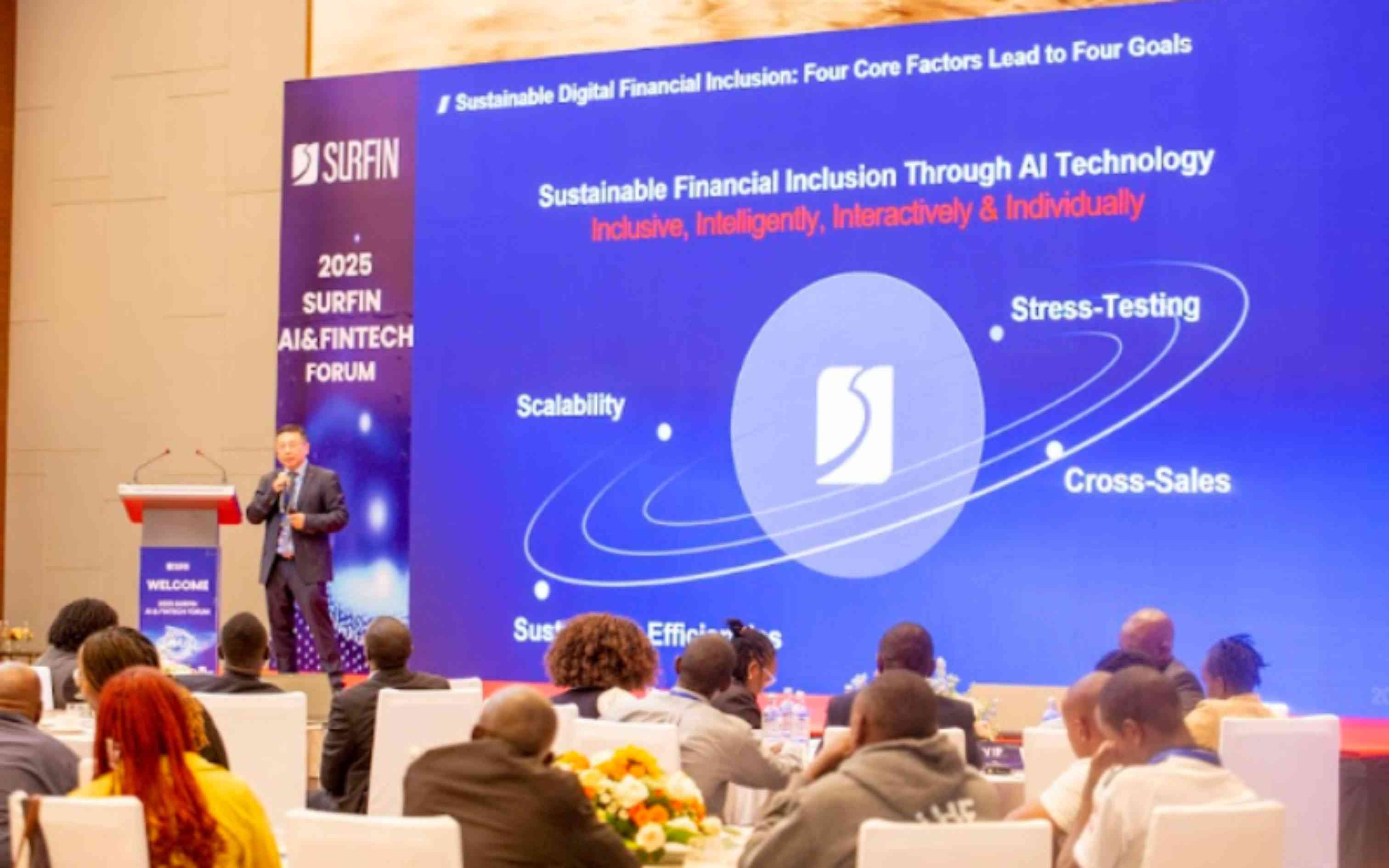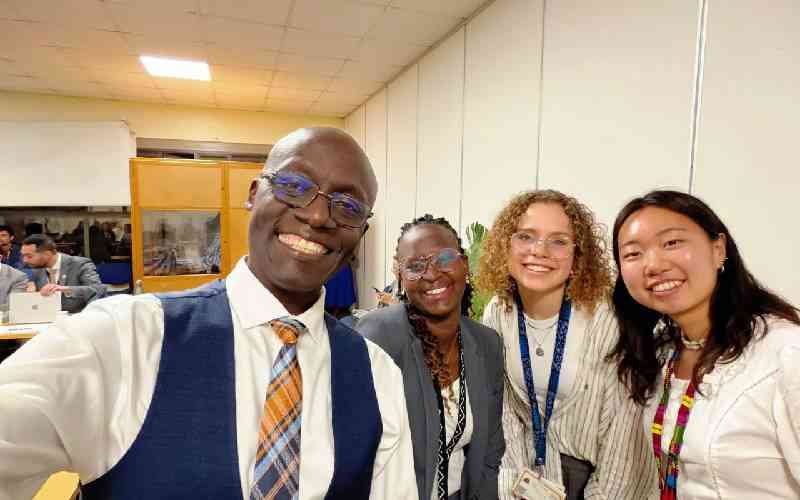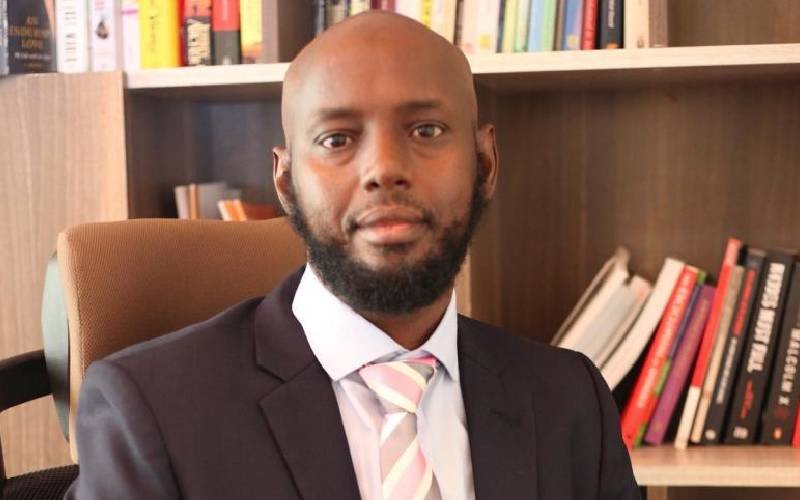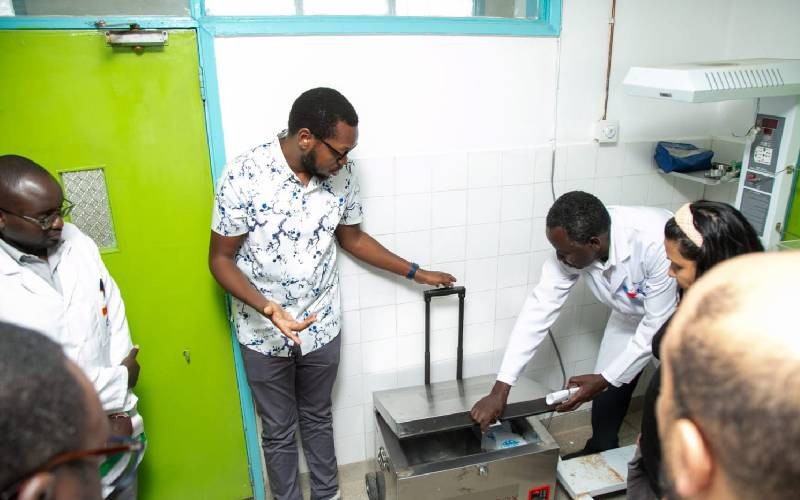
Participants follow proceedings at the Surfin AI Fintech Forum in Nairobi. [Bernard Orwongo, Standard]
Kenya’s journey from cash-based transactions to mobile-powered finance is transforming how millions across Africa access money and build businesses.
Finance and National Planning Chair Kimani Kuria, speaking at the Surfin AI Fintech Forum in Nairobi, described the shift as life-changing, recalling a time when paying school fees meant stuffing cash into socks for safekeeping.
“When I was in high school, I would go back to school, my grandfather would give me school fees to go and pay, and I would pack all the money in my socks, just to make sure that somebody didn't steal it. This was a significant barrier,” Kuria recalled.
He said mobile money has removed such risks and opened new economic doors.
M-Pesa now handles more than 61 million daily transactions and supports everything from paying bills to receiving government grants.
“This is a monumental change and a consequence of digital financial service innovation,” Kuria explained.
The forum, held on Monday, June 16, brought together policymakers, academics and technology leaders to explore how artificial intelligence and mobile data are expanding access to credit and improving financial inclusion across the continent.
Kuria said digital platforms now empower women, smallholder farmers and micro-entrepreneurs by improving access to finance.
“The most important is a woman granted a small chance in her own business,” he observed, adding, “She can easily perform.”
Artificial intelligence is already changing lending models, fraud detection and user experience.
“This is a shift from asset-based lending to trust-based data-driven lending,” Kuria explained.
Industrialisation Secretary Erastus Gatebe said the government is focused on creating an environment that supports innovation.
“One of the beauty of the technology has no boundaries, you can do things wherever you are, where you are,” Gatebe noted.
He said policy changes now allow even online-only businesses to register and benefit from state support.
“One area that you can lose in this kind of business is when you do not have business registration.”
Nobel Laureate Michael Spence urged African governments to avoid outdated economic paths and instead pursue growth led by digital tools.
“There is no reason African countries should follow a linear development path,” Spence remarked.
He cautioned against rising global protectionism, warning it could undermine the continent’s progress.
“Focus on interoperability, invest in people and build the trust that drives financial participation,” he said.
Yanan Wu, Chief Executive Officer of Surfin Group, challenged the idea that Africa trails in tech innovation, noting, “We see innovation coming from Kenya, Nigeria, Rwanda — not just consumption but creation.”
Wu said, “Surfin wants to co-create, not just localise.”
Wu noted the firm uses mobile behaviour data instead of credit history to reach those excluded by traditional banks. “We do not rely on traditional credit histories,” he noted.
“We look at behavioural signals, mobile data and local context to make services accessible and safe.”
Trust remained a recurring theme, with Professor John Quelch, a global business strategist, saying no fintech system can scale without it.
“You cannot scale fintech without trust,” Quelch observed. “It is not just design, it is about reliability and communication.”
Speakers at the forum agreed that Africa’s digital finance future depends not only on new technologies but also on deep partnerships, inclusive policies and a firm focus on trust.
 The Standard Group Plc is a multi-media organization with investments in media
platforms spanning newspaper print
operations, television, radio broadcasting, digital and online services. The
Standard Group is recognized as a
leading multi-media house in Kenya with a key influence in matters of national
and international interest.
The Standard Group Plc is a multi-media organization with investments in media
platforms spanning newspaper print
operations, television, radio broadcasting, digital and online services. The
Standard Group is recognized as a
leading multi-media house in Kenya with a key influence in matters of national
and international interest.











